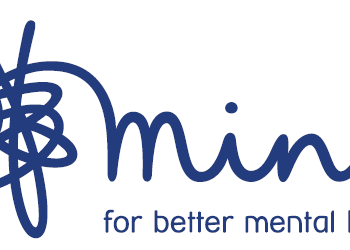The UK government’s Emergency Coronavirus Bill paves the way for widespread changes to legislation that could potentially have an alarming impact on our human rights, especially in the area of mental health.
While we understand the important role the government now has to play in reducing the strain on the NHS and combating Covid-19, it is essential that its response is compatible with the protections in the Human Rights Act.
Importantly, the Human Rights Act does allow for certain rights to be restricted for public health reasons – such as the right to liberty and the right to a private family life. However, crucially, these restrictions need to be proportionate. Some of the arbitrary changes we discuss below raise huge human rights concerns.
Two key concerns for the protection of people’s human rights in a mental health context are:
- The temporarily removal of legal duties to assess and provide care and support needs for adults in some of the most vulnerable positions, including disabled and older people and carers.
- Only one doctor will be needed to sign off whether a person is sectioned (detained) under the Mental Health Act – where currently there must be two. The Bill also allows for “the extension and removal of time limits in mental health legislations”.
What does this mean?
The first change means that for up to two years local authorities will no longer have a legal duty to provide care and support to all people who are eligible under the Care Act 2014. Instead, councils will have a duty to provide care only if necessary to avoid breaching a person’s rights under the Convention of Human Rights (ECHR).
The Convention does not contain a specific right to social care – raising concerns that some may be left without the support they need. Although it does protect many relevant rights – such as the right to privacy (Article 8), not to be discriminated against (Article 14) and not to be subjected to inhuman or degrading treatment (Article 3).
Social workers will need to be supported to ensure that they can identify and avoid breaches of these rights. Currently, there is no mandatory human rights training for such staff and very little guidance.
It is likely that local authorities will still try to review and meet care needs where possible. But it will this will no longer be a legal requirement. This change in duty also does not take into account how the loss of such vital support might impact on someone’s physical and mental health in the long term, especially if they are in one of the vulnerable categories identified by the government in its own Covid-19 advice.

Credit: Unsplash
Removing safeguards around detention and discharge in mental health hospital settings means that people are at risk of being detained without scrutiny or adequate review around the necessity and length of detention. In terms of discharge, there is now an increased risk that a person is more likely to be discharged before they are truly ready and without access to suitable provision to maintain their physical and mental wellbeing in the community. We know from experience that, when a person is discharged back to the community without support, they are very likely to be at risk of detention again.
What could the wider impact be?
These new measures could affect many people. NHS data shows that almost 50,000 people were newly detained (sectioned) under the Mental Health Act in 2018/19, although the true figure is likely to be higher as the data is incomplete.
The Bill is also going to be introduced amongst the backdrop of some significant failures of existing mental health law and services to respect the rights of people who are detained. The Mental Health Act (MHA) itself is currently under review and the Mental Capacity Act has been amended as recently as 2019 with the Code of Practice yet to be published. There are numerous reviews and investigations into the way detained people are treated, and in February the Care Quality Commission argued that more focus on human rights is needed by healthcare services when using the MHA.
The Covid-19 pandemic is likely to impact on everyone’s physical and mental wellbeing, especially those who already have recognised mental health issues. Many people will find it challenging to have less contact with other people and may have reduced access to vital services such as support groups or therapy. It is essential that the safeguards around people who are more likely to be affected by this are protected and not diminished.
Credit: Raw Pixel
The people we work with everyday tell us their mental health treatment would have been so much better if only their rights had been respected, rather than making them feel powerless. The risk with sweeping new measures is that the experience of people who are already vulnerable becomes even worse.
The Bill looks set to be in place for two years, although the government has agreed for it to be reviewed by Parliament every six months. The real-life effects on people’s lives could be huge, particularly when we are considering people who are already in a vulnerable position and subject to significant control under mental health law. For example, the potential to detain a person for up to two years without review is highly worrying.
What next?
Responding to a global health crisis does of course require quick decision making and rapid action, but it is still vital that people’s voices are listened to as part of this process.

Credit: Andrea Piacquadio from Pexels
It is reassuring that the government has indicated that it is willing to listen and respond to concerns by inserting a six month renewal clause into the proposed Bill.
The Bill is now making its way through the House of Lords and could become law as soon as Thursday.
Perhaps we can be hopeful that the debate recognises the need for all restrictions on our rights to proportionate and rights respecting.
In the meantime, we all need to continue to push for changes that use human rights as a starting point to maintaining dignity and respect for people in these challenging times rather than as an afterthought.
The views expressed in this article are those of the authors and do not necessarily reflect the views of EachOther.






